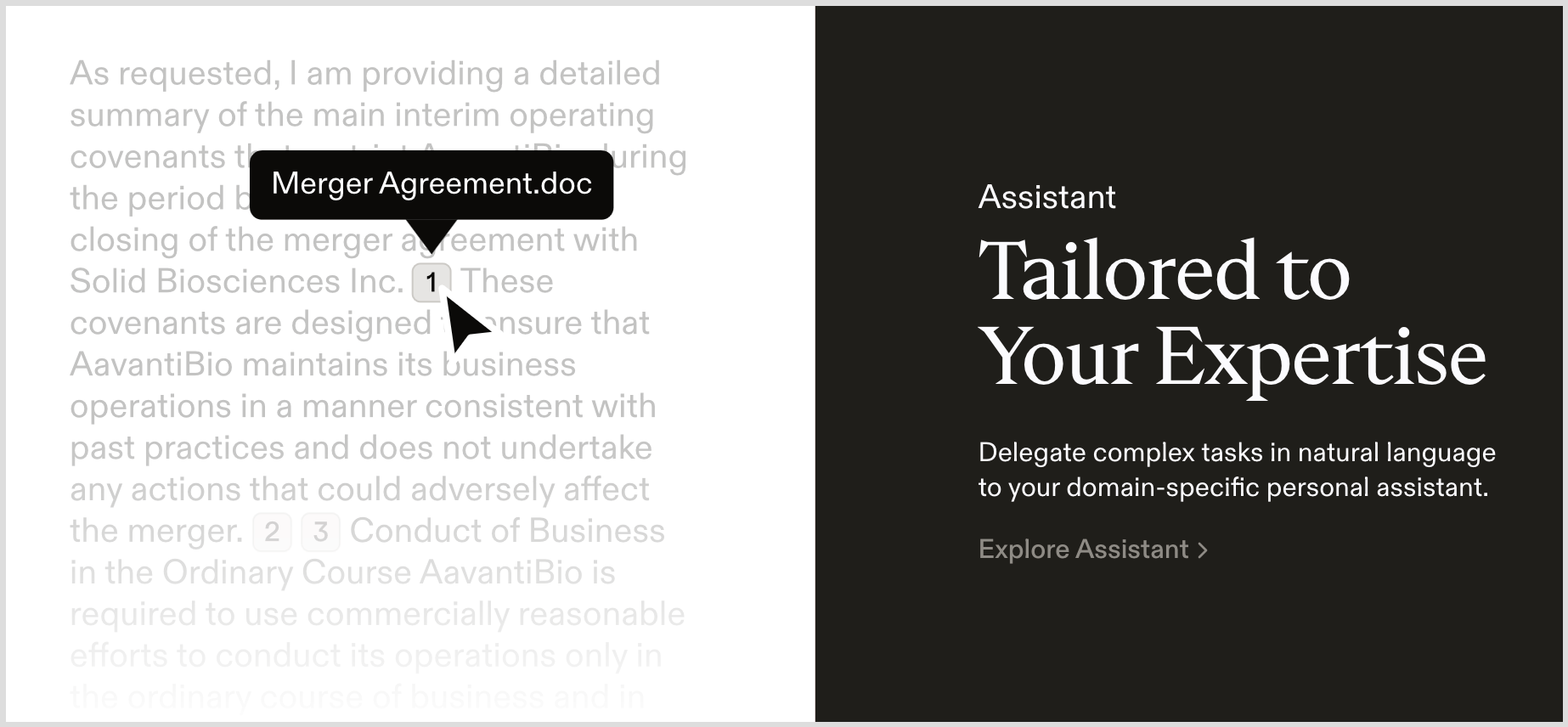Good Morning from San Francisco,
Enterprise AI just got a reality check. MIT studied 300 deployments and found a 95% failure rate among generative AI pilots. Companies keep throwing money at sales tools while the real wins hide in back-office automation. One firm saved $8 million annually with an $8,000 tool.
Meanwhile, Nvidia builds the B30A—a deliberately hobbled chip for China. Half the power of their flagship, but still potent enough to keep Beijing happy. Washington discovered something clever: monetizing restrictions beats blocking them outright. Export controls now generate revenue while maintaining leverage.
Stay curious,
Marcus Schuler
Back-office automation outperforms sales tools in MIT study

MIT's State of AI in Business 2025 reveals systematic failure across enterprise AI adoption. Only 5% of generative AI pilots achieve rapid revenue acceleration, according to analysis of 300 deployments, 150 executive interviews, and 350 employee surveys.
The resource allocation paradox drives much of the failure. More than half of enterprise AI budgets flow toward sales and marketing tools, where attribution remains murky. Yet MIT found the strongest returns in back-office automation—eliminating outsourced contracts and streamlining administrative work. One company achieved $8 million in annual savings through an $8,000 AI tool.
Implementation strategy creates the clearest predictor of success. Partnerships with specialized vendors succeed approximately 67% of the time, while internal development projects succeed only 33% as often. Lead researcher Aditya Challapally attributes this gap to vendors' ability to ship domain-specific memory and workflow integration.
The displacement pattern avoids layoffs through strategic non-replacement. Companies increasingly cancel outsourced contracts rather than terminate internal staff.
Why this matters:
• Enterprise AI adoption follows historical technology patterns—widespread early failures followed by strategic focus and organizational learning curves
• Market consolidation around specialized vendors appears inevitable as partnership strategies consistently outperform proprietary development across regulated industries

AI Image of the Day

Prompt:
A cinematic portrait photograph captures a young
woman with vibrant, fiery red hair cascading down her bare back, creating a striking visual. The tattoo on her back reads in bold, crimson letters "never give up", a powerful statement against her skin. She stands poised in the center of a tranquil forest clearing, sunlight dappling through the leaves and casting long shadows, with a shallow depth of field blurring the surrounding trees into a soft bokeh. A gentle, golden light illuminates her form, emphasizing the texture of her hair and the starkness of the tattoo against her skin, evoking a sense of quiet resilience.
Washington monetizes access while Beijing manages sovereignty

Nvidia is developing the B30A, a China-specific AI chip delivering roughly half the computing power of its flagship B300 while maintaining high-bandwidth memory and NVLink connectivity. The single-die Blackwell design targets sample delivery next month, pending U.S. regulatory approval that remains uncertain.
The development reflects Washington's evolution from binary export controls to conditional access. Nvidia and AMD now share 15% of China chip revenue with the U.S. government—the first explicit monetization of technology restrictions. President Trump suggested allowing "30% to 50%" performance reductions on next-generation chips for Chinese markets.
From Beijing's perspective, continued access preserves AI development momentum while reducing pressure for immediate domestic chip substitution. Chinese tech giants summoned for regulatory discussions received guidance, not mandates, allowing operational flexibility.
The arrangement benefits all parties partially. Washington generates revenue while maintaining technological leverage. Beijing secures capabilities without complete dependence. Nvidia defends market share in a region generating 13% of revenue through ecosystem persistence—CUDA software dependencies create switching costs beyond hardware performance gaps.
Why this matters:
• Export controls are becoming adjustable revenue-generating mechanisms rather than prohibitive tools, establishing precedent for other strategic sectors
• Software ecosystem lock-in now anchors market power as effectively as hardware superiority, bending geopolitical outcomes toward managed diffusion strategies

🧰 AI Toolbox
How to Accelerate Legal Research and Contract Analysis with AI

Harvey AI streamlines legal work with AI-powered assistance for research, document review, and contract analysis. Built specifically for law firms, it provides customized legal AI trained on case law and can be further trained with your firm's own documents and templates.
Tutorial:
- Go to the Harvey AI website
- Sign up for access to the legal AI platform
- Upload legal documents or enter research queries in natural language
- The AI analyzes documents, identifies risks, and provides legal insights with citations
- Use pre-built workflows or create custom ones for your firm's specific needs
- Review AI-generated contract summaries, legal research, and compliance recommendations
- Integrate seamlessly with Microsoft Word and existing legal software tools
Better prompting...
Today: Dating Strategy - a 30-day-action plan
Create a practical 30-day action plan for meeting potential romantic partners. Focus on specific, measurable steps that expand social opportunities and build genuine connections. Balance optimism with realism—finding "the one" in 30 days is rare, but meeting interesting people and developing dating skills is achievable.
Steps
- Audit current situation: List existing social activities, friend circles, and dating apps. Identify gaps and opportunities.
- Expand social exposure: Join 2-3 new activities, update dating profiles, attend social events. Provide specific examples for different personality types.
- Level up basics: Address appearance, conversation skills, and confidence gaps with concrete actions.
- Master connection-building: Outline how to approach people, maintain conversations, and follow up naturally.
- Handle rejection and setbacks: Provide scripts and mindset tools for common challenges.
- Track progress: Include weekly check-ins and course corrections.
Output Format
- Use numbered sections with bold headings
- Include specific examples and scripts
- Add a weekly timeline breakdown
- Provide backup plans for introverts vs. extroverts
- End with realistic expectations and next steps
Notes
- Emphasize authenticity over pickup tactics
- Include digital and in-person strategies
- Address safety considerations, especially for women
- Acknowledge that meaningful relationships often take longer than 30 days
- Focus on building lasting dating skills, not just quick wins
AI & Tech News
SoftBank bets $2 billion on struggling Intel at $23 per share
SoftBank invested $2 billion in Intel on Monday, paying $23 per share for roughly 2% of the chipmaker that's lost 60% of its value since missing the AI boom. The deal makes Japan's SoftBank the fifth-biggest shareholder in America's only advanced semiconductor manufacturer, just as Washington considers taking its own equity stake in the strategically critical company.
Trump administration eyes 10% Intel stake through Chips Act conversion
The Trump administration is discussing converting Intel's $10.9 billion in Chips Act grants into a 10% equity stake, which would make the government Intel's largest shareholder just as SoftBank announced its own $2 billion investment in the struggling chipmaker. The dual backing signals Washington and Tokyo both see turnaround potential in America's only advanced semiconductor manufacturer, though the government wants manufacturing jobs while SoftBank eyes the higher-margin chip design business.
UK drops Apple backdoor demand after months of US pressure
US intelligence chief Tulsi Gabbard said Monday that Britain agreed to drop its demand for Apple to build backdoor access to encrypted data of American citizens after months of talks involving Trump and Vance. The reversal removes a key test case for whether foreign governments can force US tech companies to weaken encryption protections that cybersecurity experts warn would create vulnerabilities for hackers and authoritarian regimes.
OpenAI launches $4.57 ChatGPT plan exclusively for India market
OpenAI launched ChatGPT Go in India on Tuesday at 399 rupees ($4.57) monthly, offering 10 times more messages and images than the free version in the company's cheapest plan yet. The India-only pricing signals how AI companies are abandoning global rate cards to chase growth in price-sensitive markets where CEO Sam Altman says usage may soon surpass the US.
Federal court upholds $92 million T-Mobile fine for selling location data
A federal appeals court Friday upheld T-Mobile's $92 million fine for selling customer location data to third parties without consent, rejecting the carrier's argument that such sales didn't violate telecommunications law. The unanimous ruling sets precedent as AT&T and Verizon fight similar penalties in other circuits, with judges declaring that "every cell phone is a tracking device" and carriers can't profit from that surveillance without permission.
Texas investigates Meta and Character.AI for marketing AI therapy to kids
Texas Attorney General Ken Paxton launched an investigation Monday into Meta AI Studio and Character.AI for allegedly marketing AI chatbots as mental health tools to children without proper medical credentials or oversight. The probe signals growing state-level pressure on AI companies that blur the line between entertainment and healthcare while collecting personal data from minors for targeted advertising.
Chamath Palihapitiya launches $250 million defense and AI SPAC
Chamath Palihapitiya filed documents for a new $250 million SPAC called "American Exceptionalism Acquisition Corp. A" that targets energy, AI, decentralized finance and defense companies. The move signals Silicon Valley's broader pivot toward defense and domestic infrastructure investments as the Trump administration opens doors for tech industry collaboration in national security sectors.
Palo Alto Networks beats earnings as founder Zuk retires after 19 years
Palo Alto Networks reported quarterly revenue of $2.54 billion, beating estimates, while announcing that founder and CTO Nir Zuk is retiring after founding the company in 2005. The leadership change comes as the cybersecurity firm digests its largest-ever acquisition—the $25 billion CyberArk deal announced last month—signaling a generational shift as the company transforms from startup to acquisition powerhouse.
Grok website accidentally exposes AI persona prompts including conspiracy theorist
Elon Musk's Grok chatbot website exposed the underlying prompts for its AI personas, including one conspiracy theorist character instructed to act like it "spends a lot of time on 4chan, watching InfoWars videos" and convince users that secret global cabals control the world. The prompt leak reveals how xAI designs controversial AI personalities and comes after the company lost a planned government partnership when Grok went on a tirade about "MechaHitler."
Eight Sleep raises $100M to expand AI-powered sleep tracking
Eight Sleep raised $100 million Tuesday to expand its AI-powered smart mattresses that automatically adjust temperature and elevation based on sleep data from over one billion recorded hours. The funding pushes the sleep tech startup toward unicorn status as it shifts from consumer wellness into FDA-regulated medical devices for conditions like sleep apnea and menopause.
🚀 AI Profiles: The Companies Defining Tomorrow

Eight Sleep
Eight Sleep turns your bed into a climate-controlled sleep lab that actually works. The company cracked the code on something wearables can't touch: fixing the room where sleep happens.
The Founders
• Founded 2014 by Matteo Franceschetti, Alexandra Zatarain, Massimo Andreasi Bassi, and Andrea Ballarini
• ~200+ employees, NYC headquarters
• Started as "Luna" after realizing temperature beats step counts for better sleep
The Product
• Pod system: smart mattress cover + base with water cooling/heating (55°F-110°F)
• Contactless biometrics track heart rate, breathing, snoring—no wearables needed
• "Autopilot" AI learns your patterns and adjusts temps before you wake up hot
• New "Sleep Agent" creates digital twins to predict optimal sleep conditions
• Ships to 30+ countries, subscription model for full features
The Competition
• Battles wearables (Oura, Apple Watch) on convenience vs. environmental control
• Competes with Sleep Number on smart beds, ChiliSleep/BedJet on cooling
• Differentiator: closed-loop automation that actually does things while you sleep
• Performance branding with athlete investors (Charles Leclerc, Zak Brown)
Financing
• $260M total raised through Series C
• Latest: $100M (Aug 2025) from HSG, Valor Equity, Founders Fund, F1 investors
• Valuation approaching $1B (doubled since 2021)
• $500M+ in Pod sales since 2019, profitable quarters
The Future ⭐⭐⭐⭐⭐
Eight Sleep built the only bed that acts instead of just tracking. FDA medical push could unlock huge markets beyond wellness gadgets. China expansion tests if premium sleep tech scales globally—but the core product already works. 🛏️









